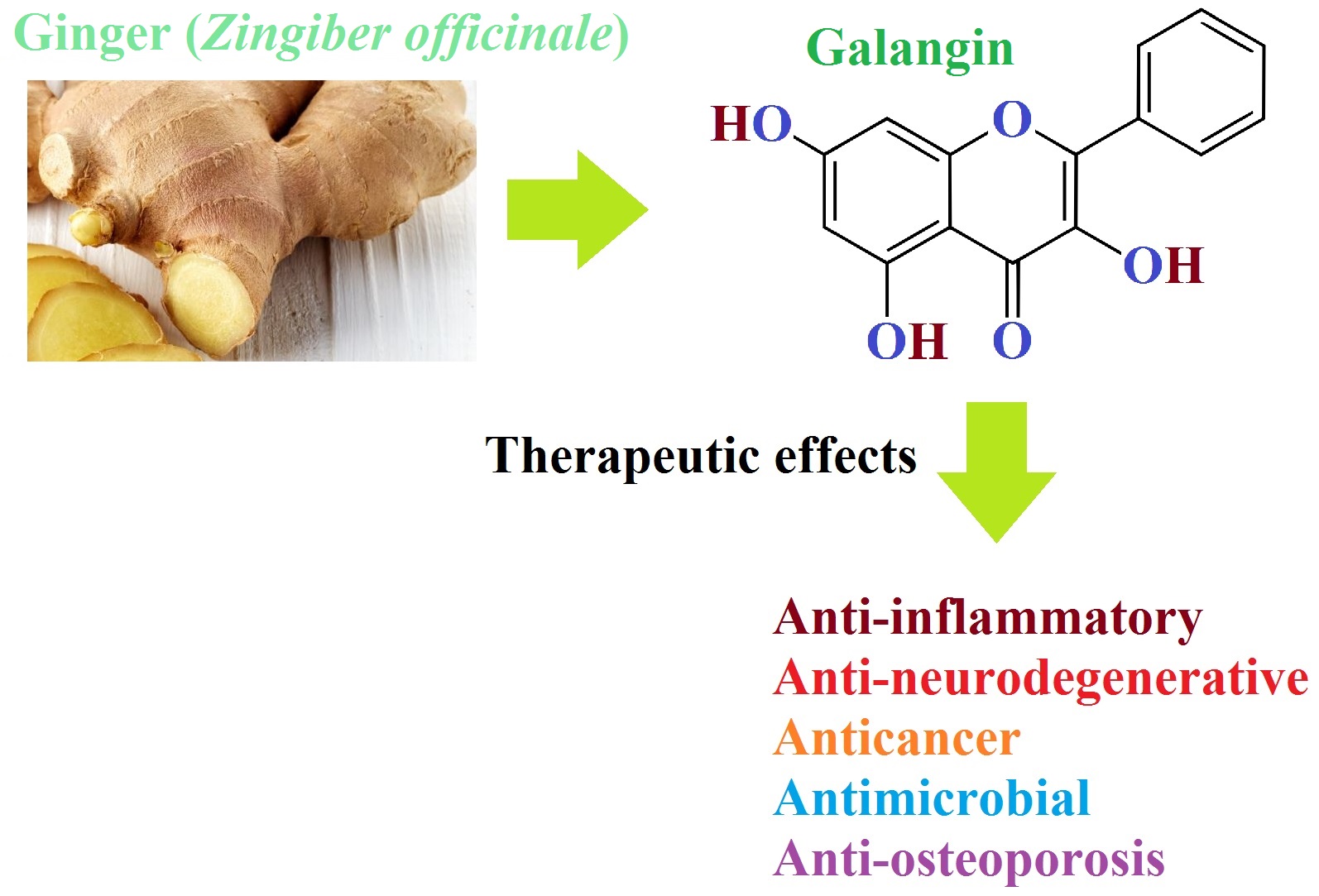Document Type : Mini-Review
Authors
1
Zoonoses Research Center, Research Institute for Health Development, Kurdistan University of Medical Sciences, Sanandaj, Kurdistan, Iran; Cellular and Molecular Research Center, Research Institute for Health Development, Kurdistan University of Medical Sciences, Sanandaj, Kurdistan, Iran; Department of Microbiology, Faculty of Medicine, Kurdistan University of Medical Sciences, Sanandaj, Kurdistan, Iran
2
Golestan University of Medical Sciences, Gorgan, Golestan, Iran
10.22034/mnba.2023.423432.1051
Abstract
Numerous biomedical activities including antioxidant, anti-inflammatory, antimicrobial, antiproliferative, anti-obesity, anti-genotoxic, anti-neurodegenerative, and antidiabetic activities have been indicated for galangin flavonol. As the main application, galangin can be utilized as a potential adjuvant for reducing the cytotoxic effects of chemotherapeutic agents such as cisplatin and doxorubicin. Blocking p38 mitogen-activated protein kinases, nod-like receptor protein 3 signals, and nuclear factor-kappa B, have been found for the main anti-inflammatory mechanisms of galangin. Several disadvantages including sensitivity to light, temperature, pH, low insolubility in aqueous medium, and semi-permeability to gastrointestinal barriers have been indicated for galangin. For overcoming these clinical limitations, presenting efficacious formulations composed of micro or nanomaterials is critical. This mini-review made an effort to discuss the advances and challenges of these formulations with anti-inflammatory, anticancer, anti-neurodegenerative, antibacterial, antiviral, and anti-osteoporosis activities for opening novel avenues of future investigations.
Graphical Abstract

Highlights
- c-JNK, NF-κB, LPS-induced phosphorylation of p38 MAPK, and PI3K/Akt activity may be reduced by galangin.
- Galangin can hinder metastasis by reducing the upregulation of MMP-2/-9.
- The topoisomerase IV enzyme has a critical role in the severity of the antibacterial capacity of galangin.
- Galangin showed in vitro antiviral effects on HSV-1, Cox B1, Ad-31, and reovirus.
- For anti-osteoporosis function, galangin down-regulates osteoclast-specific genes such as V-ATPase d2.
Keywords
Main Subjects

